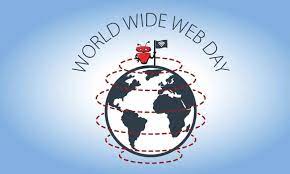World Wide Web Day 2023: Date, Significance and History

World Wide Web Day 2023: Date, Significance and History: Every year on August 1, World Wide Web Day is observed. The day is commemorated to commemorate the World Wide Web (www) and its global effect. Tim Berners-Lee proposed the World Wide Web on the alt.hypertext newsgroup on August 1, 1991; this day is thus observed with considerable significance every year. The year 1989 marked the beginning of the Internet. From that point forward, it has continued to evolve.
Daily Current Affairs Quiz: August 2023
World Wide Web Day 2023: Significance
World Wide Web Day is significant because it provides an opportunity to reflect on the impact of the internet on our lives and to honour Tim Berners-Lee and the many other people who have contributed to its creation. The day is an indication of the force of the web to interface individuals and share information. It is likewise a day to praise the creativity and development that has made the web what it is today.
World Wide Web Day 2023 Celebration
On World Wide Web Day, people around the world engage in various online activities, such as accessing the internet, taking selfies to share on social media, participating in blog discussions, listening to podcasts, conducting VoIP conferences about different topics like the weather, utilizing remote servers to back up their data, synchronizing family photos for sharing, scheduling doctor appointments online, and engaging in discussions that may not always be necessary.
Furthermore, World Wide Web Day is marked with numerous events globally, where prominent figures who played key roles in creating and developing the World Wide Web are the focus of conversations and interviews at prestigious institutions.
World Wide Web Day 2023: History
The World Wide Web, or simply ‘the Web’, was made by Sir Tim Berners-Lee in 1989 while he was working at CERN (the European Organisation for Nuclear Research). In March 1989, Berners-Lee presented a proposal for a “distributed information system” to facilitate sharing and updating information between scientists at CERN. WorldWideWeb (later renamed Nexus) and the first web server, “httpd,” were created in 1990 by Berners-Lee and his colleague Robert Cailliau.
The world’s first website went live on August 6, 1991. It was a basic page that made sense of the World Wide Web project and gave data about how to access and utilize it. This site was hosted on Berners-Lee’s NeXT computer, which likewise served as the world’s first web server.